Running on Empty (32 page)
Authors: Marshall Ulrich

August 11-17, 2008 (125 miles/week)
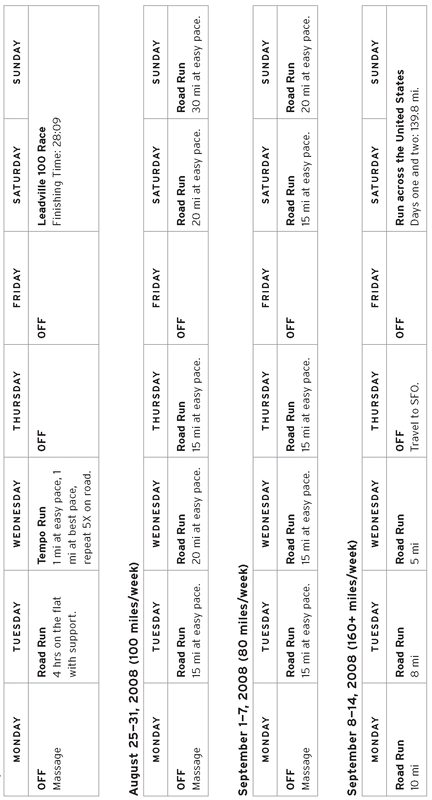
Appendix B
Course Statistics

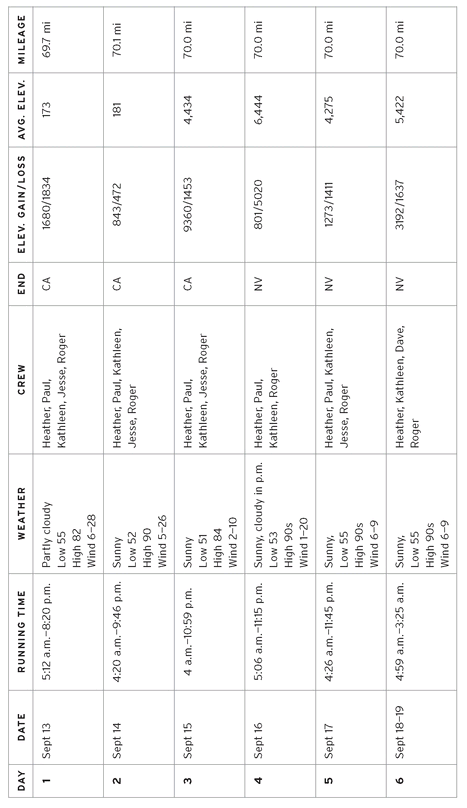
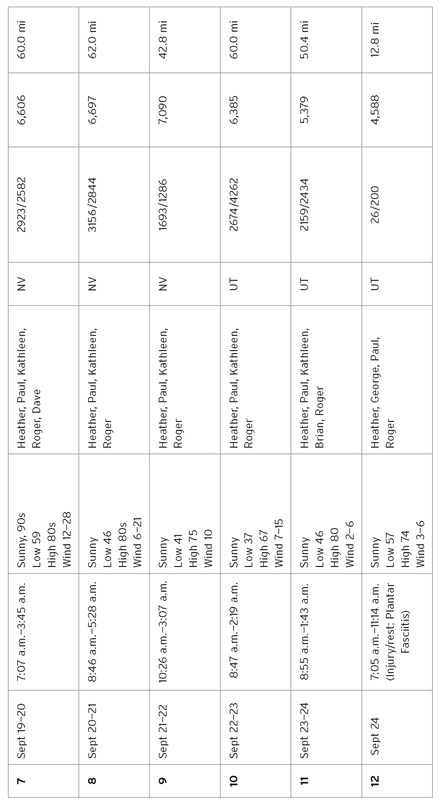
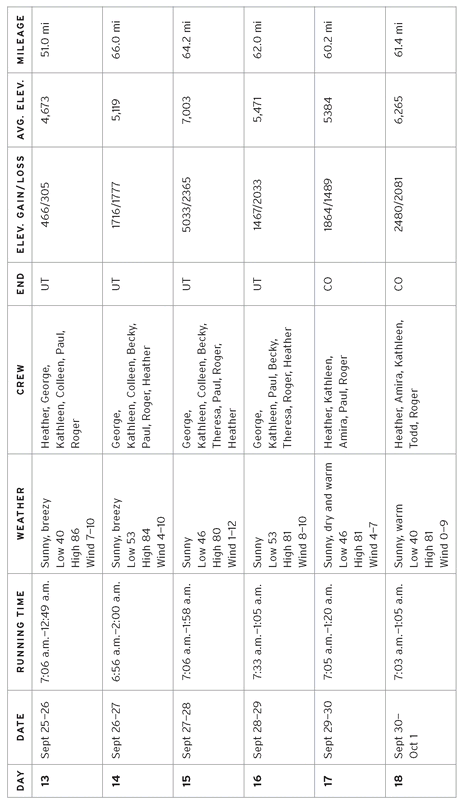
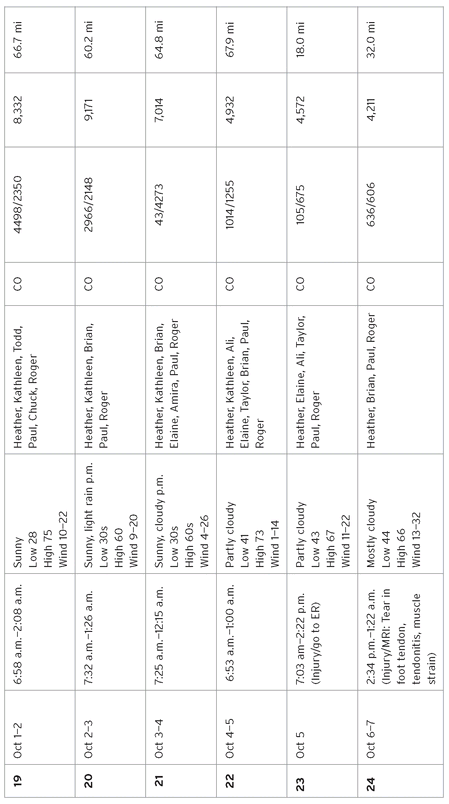
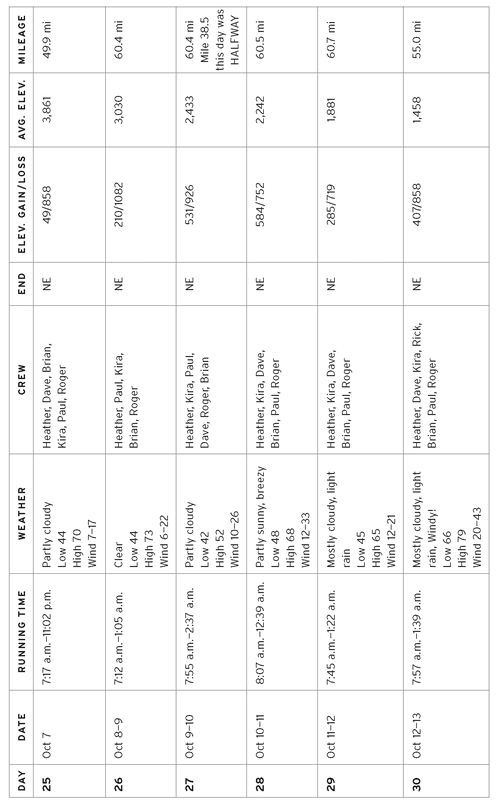
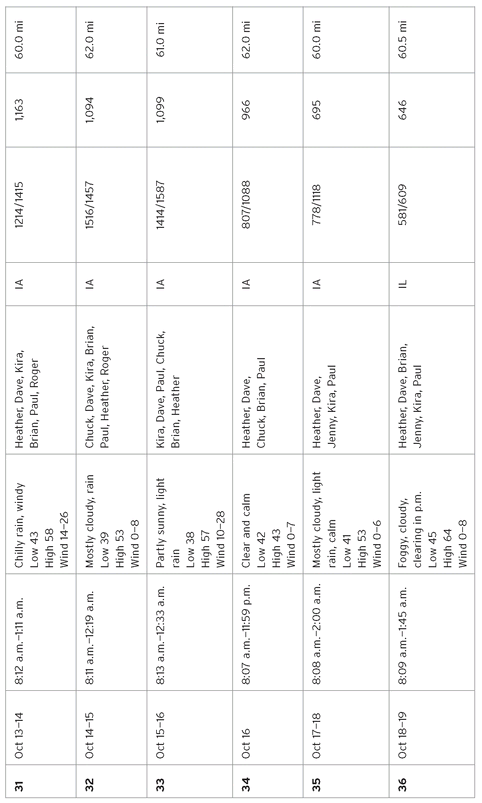
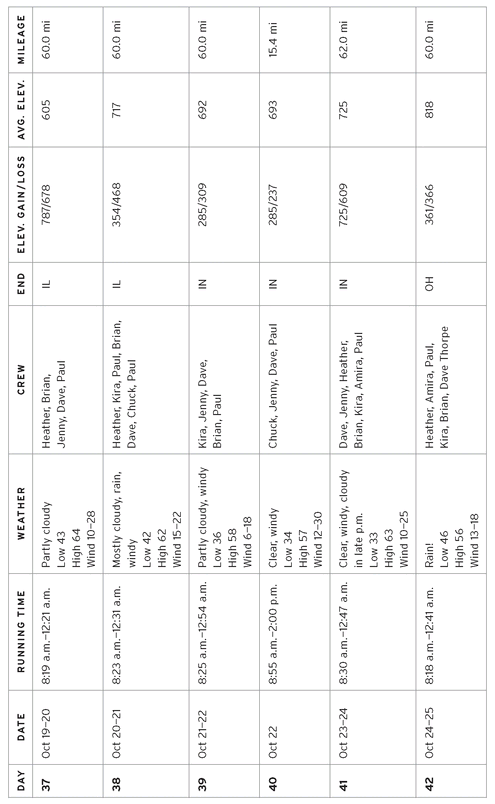
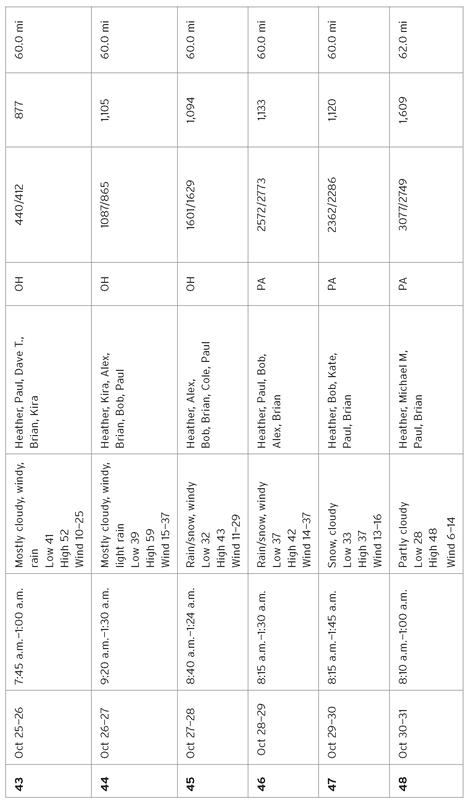
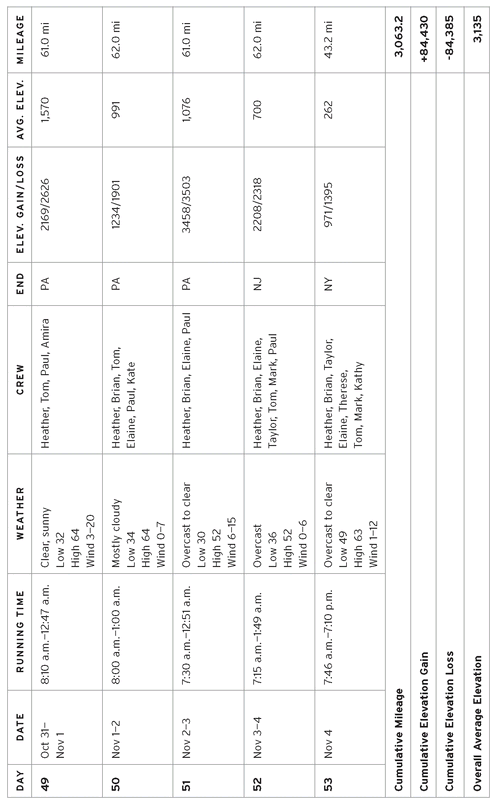
Appendix C
Nutrition and Diet
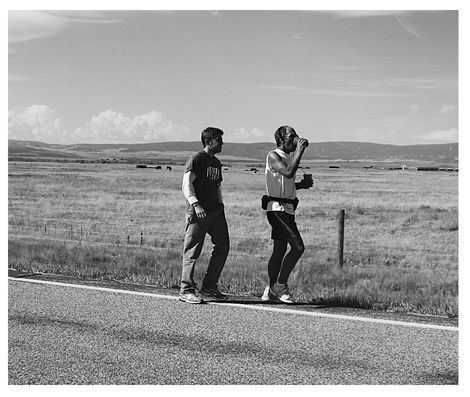
Although my philosophy regarding sports nutrition is simply to eat real food to provide essential vitamins and minerals, I do supplement with a few pills and powdersânothing too out-of-the-ordinary, though. During my run across the United States, I took a daily multivitamin for general health, glucosamine and chondroitin to protect the joints, omega fatty acids for heart health, Endurox Excel Natural Workout Supplement to help the body burn fat more efficiently and reduce the need for carbohydrate consumption, probiotics to aid digestion, liquid vitamin B complex to fortify the immune system and provide energy, L-glutamine to aid in muscle repair, and Sustain tablets for electrolyte replacement. Beyond that: just food. Real food, not special food for athletes, no gels, bars, fancy recovery mixes, or things like that. We figure that I ate as much as four men would normally eat, and I consumed only one “engineered” or sports-specific food supplement during the runâeverything else was the normal fare anyone can buy in a grocery store. In ultrarunning, as in many sports, people are often looking for the silver bullet, the one thing you can consume to make it all easier. I'm here to tell you that nothing like that will make running hundreds of miles “easier.” Or, for that matter, ten miles. Sure, you need to eat sufficient protein, carbohydrates, and other nutrients. But I like what Michael Pollan has to say: This is the first time in history that people are trying to figure out what to eat based on individual nutrients rather than just choosing
food.
That's a mistake in my book (and, to give credit where credit's due, he points out the mistake in his book, as well). Similarly, some tout a vegetarian diet, but I'm not buying that, either. I've read that our evolutionâparticularly, our ability to run and think fastâseems to be linked to obtaining protein (meat), and our body mass and brain size seem to be linked to eating meat and fat. Given our smaller, omnivore teeth and simple (not ruminant) gut, we're suited to digesting meat effectively. Theoretically, we do better as a species when we include decent-quality animal protein in our diets.
food.
That's a mistake in my book (and, to give credit where credit's due, he points out the mistake in his book, as well). Similarly, some tout a vegetarian diet, but I'm not buying that, either. I've read that our evolutionâparticularly, our ability to run and think fastâseems to be linked to obtaining protein (meat), and our body mass and brain size seem to be linked to eating meat and fat. Given our smaller, omnivore teeth and simple (not ruminant) gut, we're suited to digesting meat effectively. Theoretically, we do better as a species when we include decent-quality animal protein in our diets.
Other books
That Summer by Sarah Dessen
Set the Night on Fire by Jennifer Bernard
Ultimate Prizes by Susan Howatch
The Voyeur Next Door by Airicka Phoenix
Roped for Pleasure by Lacey Thorn
A Burial at Sea by Charles Finch
Fast Forward by Juliet Madison
All of My Love by Francis Ray
Haunt (Bayonet Scars #6) by JC Emery
The Peace Proxy: Part 1 by Cyril Adams